Field Trips
Course details are also available on the registration site.
For more information or to register for the field trip, please visit the field trip registration site below.
* Link to external page of NTA.
* A cancellation fee will be charged from 20 days prior to the start of the tour. Please check the registration site for details.
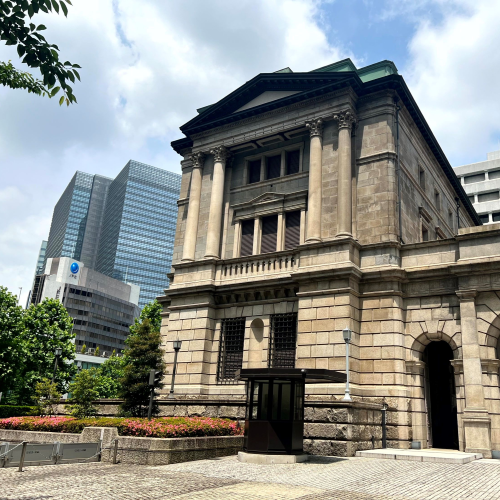
|
Stone viewing in the heart of Tokyo! Date: May 26th (Mon.), 2025 Excursion Leader: Shoji Nishimoto (Aichi University) & Chiaki, Oguchi (Saitama University) Price: JPY2,000 Local meeting / Local break up |
Many valuable and interesting stones are used in buildings in Tokyo's city center. On this tour, you will walk while looking at the stonesused in historical buildings around Nihonbashi, with explanations byDr. Shoji Nishimoto, author of “Tokyo ‘Street Corner’ Geology. “ |
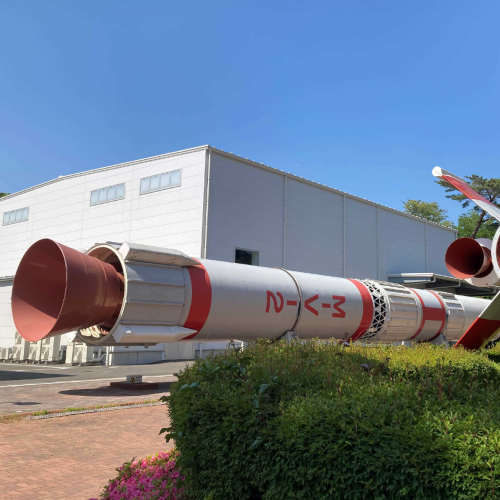
|
Visit to JAXA/ISAS Date: May 29th (Thu),2025 Price: JPY9,500 Meet at Makuhari Messe / Break up at Makuhari Messe |
This is a tour of the JAXA Institute of Space and Astronautical Science, the center of Japan's space science development. Visit the advanced facility for space science and technology at JAXA Sagamihara Campus to experience the latest space science results. |
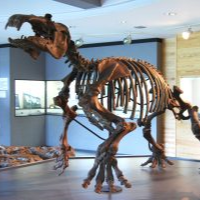
|
The metamorphic rocks and the Neogene strata of the birthplace of Japanese geology Date: May 29th (Thu),2025 Excursion Leader: Hiromichi Kitagawa (Saitama Museum of Natural History) Price: JPY16,800 Meet at Makuhari Messe / Break up at Makuhari Messe |
The Chichibu area is said to be the birthplace of Japanese geology, and we can see many kinds of rocks and strata in this area. We will observe the metamorphic rocks in the Nagatoro area and the Neogene strata and fossils in the Chichibu basin. |
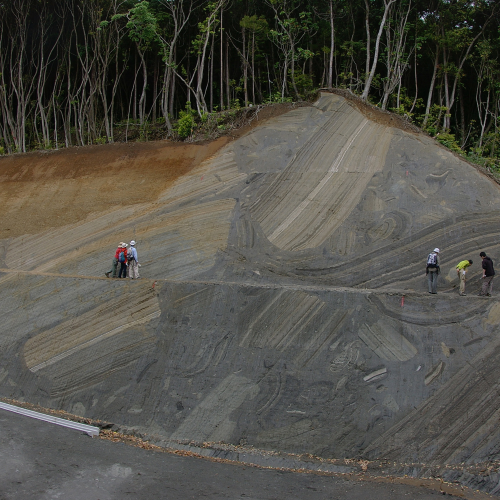
|
Subduction zone: shallow to bit deep: Boso Peinsula, central Japan
Date: May 31st (Sat.) - Jun 1st (Sun), 2025 Excursion Leader: Yuzuru Yamamoto (Kobe University) and Masayuki Utsunomiya(AIST) Price: JPY32,500 Meet at Makuhari Messe / Break up at Makuhari Messe |
Geologic characteristics of the Boso Peninsula, central Japan is the area we can see the world-youngest subduction zone geology. Here, we will trace the style of deformations in shallowly (<1 km) and bit deeply (3-4 km) buried accretionary complexes. Additionary, we will see nice outcrops representing submarine mass-transport deposits. |
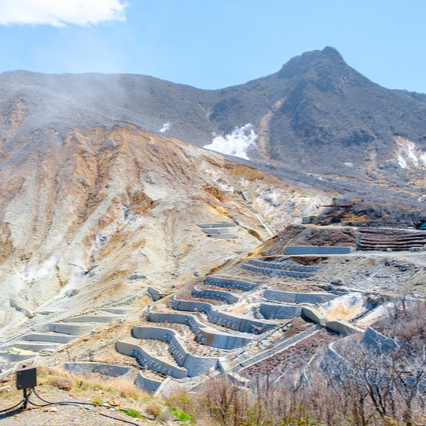
|
Hakone and Fuji: Geological and volcanological background of Japan's largest tourist destinations Date: May 31st (Sat.) - Jun 1st (Sun), 2025 Excursion Leader: Kazutaka Mannen (Hot Springs Research Institute of Kanagawa Prefecture) and Shota Watanabe(Mount Fuji Research Institute, Yamanashi Prefectural Government) Price: JPY47,000 Local meeting / Local break up |
We will visit Japan’s iconic hot spring resort, Hakone, and the symbolic Mount Fuji. In Hakone, we will explore the center of the 2015 eruption and discuss its eruptive process, as well as the mitigation measures implemented during the crisis. At Mount Fuji, we will visit a lava tube and geological outcrops located on its flank, where we will discuss its eruptive history and preparations for future eruptions. |
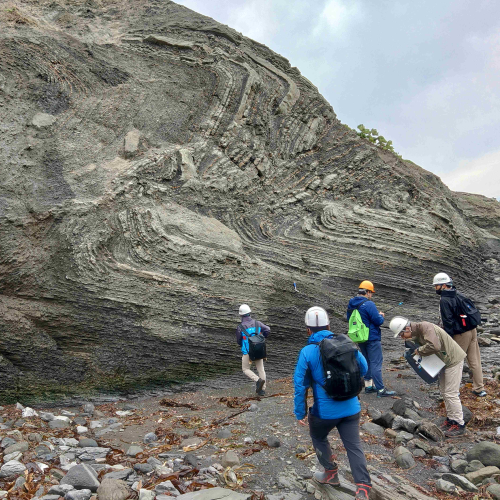
|
Sedimentary facies and igneous rocks in the Paleo-Kuril Arc: The Upper Cretaceous to Paleogene distributed in Eastern Hokkaido, northern Japan
Date: May 31st (Sat.) - Jun 2nd (Mon), 2025 Excursion Leader: Hajime Naruse (Kyoto University) and Naoto Hirano (Tohoku University) Price: JPY23,000 Local meeting / Local break up |
While enjoying the views of the beautiful marsh, coastal terraces, and sea cliffs of eastern Hokkaido, you can see the diverse sedimentary and igneous rocks deposited from the Cretaceous to the Paleogene. In detail, you can observe various sedimentary structures, pillow lavas, and dikes at the large-scale outcrop. |
MENU
Program
Abstract Submission
Presentation
Registration/Participation/JpGU ID
Event & Ceremony
Exhibition
Access
On-site Guide
Rental Room for Group Mtgs
(to Japanese page)
Documents (Certificates/Letters etc.)
PROGRAM
Sessions of 2024
Session Schedule-at-a-Glance
Scientific Program
Major Session Related Changes and Notifications
Session Proposals
Additional Requests
Tasks during Abstract Submissions
Session Organization
Regulations & Guidelines
Invited Authors & Financial Support
Registration Subsidy to Promote Participation in the JpGU-AGU Joint Meeting 2026
Introduction of Diversity Promotion Logo
Request for Cooperation as OSPA Judges
Contact Information
JpGU 2025 Conveners Task Calendar
Organization
Contact
Supporters